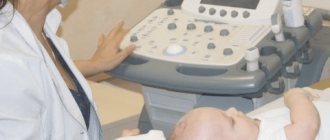"I have seen cases
when a person felt good at breakfast,
and by lunchtime he was already dead!
Dr Clayton Golledge, microbiologist, infectious disease specialist, USA.
Meningococcal infection is an acute infectious disease caused by the bacterium Neisseria meningitidis. The severity of meningococcal infection ranges from nasopharyngitis to fulminant sepsis, leading to death within a few hours.
In Russia, the incidence averages 5 per 100 thousand population per year, which is a fairly high figure. The highest prevalence of meningococcal infection in the world occurs in Central Africa, China, and South America (the so-called “meningitis belt”), where large epidemics of this disease regularly occur. Outbreaks of infection occur mainly in conditions of unsanitary conditions and crowded populations.
Meningococcal infection is characterized by seasonality - the incidence is highest in winter and early spring, because The immune system during this period is weakened by the entry into the body of a large number of viruses, which are also activated at this time of year - ARVI, influenza, etc. In addition, hypothermia is an important trigger for the development of meningococcal infection.
The only carrier of the bacterium Neisseria meningitidis is humans.
The infection spreads through airborne droplets and through direct contact with a patient or carrier. The incubation period averages 3-4 days, but can vary from 2 to 10 days. In the fulminant form of the disease, symptoms develop within a few hours from the moment the meningococcal infection enters the body.
The most common target for menigococcal infection is children under 5 years of age. The immune system of children at this age is not fully formed; In addition, children tend to touch their mouths with unwashed hands and various objects; they still poorly observe the rules of general hygiene, such as covering their mouths when coughing and sneezing, and regularly washing their hands. In addition, the spread of infection is facilitated by preschool institutions, where children closely interact with each other while playing and eating.
The mildest form of the disease is meningococcal nasopharyngitis, which symptomatically occurs as an uncomplicated acute respiratory viral infection, and therefore is often not diagnosed. At this stage, the disease may end, after which the infection becomes asymptomatic carriage, which occurs in 8-25% of patients. However, bacteria often enter the bloodstream and cause meningococcemia (or meningococcal sepsis). In this case, bacteria rapidly multiply in the blood and cause disruption of the blood coagulation system, which leads to hemorrhages in the skin and internal organs, and often ends in death. Meningococcal sepsis can be complicated by meningitis. Meningitis is an inflammation of the meninges that cover the brain and spinal cord. Meningitis is not only meningococcal - other bacteria (pneumococcus, staphylococcus, Haemophilus influenzae type B) can cause inflammation, and viral and fungal forms of meningitis also occur. Meningococcal infection has an increased tendency to affect the meninges.
Manifestations of meningococcal infection are insidious and deceptive. The first symptoms are often nonspecific; making a correct diagnosis at the initial signs of the disease can be extremely difficult. However, when a detailed picture of the disease appears, the patient often cannot be saved. There are three forms of meningococcal infection, each of which can occur independently, or have a sequential development - from nasopharyngitis to bacteremia (sepsis) and meningitis.
***
About 1 in 10 people who contract meningitis die, and up to a quarter are left with lifelong complications, including amputations and deafness.
***
Symptoms characteristic of menigococcal nasopharyngitis (similar to the symptoms of ARVI):
- Increase in body temperature to febrile levels (on average up to 38-38.5ºС)
- Phenomena of rhinitis
- A sore throat
- Headache
- Pale skin
- General weakness.
Among the above symptoms, it is extremely important not to miss a sharp deterioration in the condition, which usually develops in the shortest possible time.
Symptoms characteristic of meningococcal meningitis (50%):
- Fever that does not respond well to antipyretics and headache (flu-like symptoms)
- Stiffness of the neck (neck) muscles
- Nausea, vomiting
- Photophobia
- Impaired consciousness, confusion and disorientation
- Cramps.
Symptoms characteristic of bacteremia (sepsis), including meningococcemia (37.5%):
- Fever
- Petechial and purpuric rash (usually begins on the lower extremities)
- Hypotension
- Shock
- Multiple organ failure
- Death can occur within the first 24 hours from the onset of the first symptoms.
About 10% of people with meningococcal infection die, and 20% experience disabling complications. The basis of effective treatment is early diagnosis of the disease; prevention also plays an important role, in particular, vaccination against meningococcal infection.
According to WHO recommendations, one of the recommended approaches to the prevention of meningococcal infection is primary mass vaccination of all children and adolescents aged 9 months to 18 years, followed by inclusion of the vaccine in the routine childhood immunization program. In countries with lower incidence (<2 cases/100 thousand people per year), vaccination against meningococcal disease is recommended only in certain risk groups:
- children and adolescents in closed institutions, i.e. boarding schools, military camps;
- bacteriology laboratory workers at high risk of exposure to meningococci;
- Travelers to highly endemic regions of the world should be vaccinated against serogroups common in those regions.
At Children's Medical, you can protect your child from a dangerous disease with Menactra.
Manufacturer: Sanofi Pasteur, France.
Compatibility with other vaccines
Menactra was administered concomitantly with a polysaccharide typhoid vaccine and with an adsorbed tetanus and diphtheria toxoid vaccine for use in adults (Td) in persons aged 18–55 years and 11–17 years, respectively. The BCG vaccine should not be used simultaneously with the Menactra vaccine. Vaccines must always be administered to different parts of the body, using separate syringes for each of them.
Administering several vaccines on the same day does not place an excessive burden on the immune system. All vaccines in the Russian national vaccination calendar are interchangeable.
Anti-meningococcal vaccination against meningitis for adults and children
Statistics allow us to conclude that meningococcal infection affects 1.2 million people every year and is the main cause of purulent meningitis. In our state, routine immunization against meningococcal infection is not provided. Vaccination is indicated only in cases of the presence of an epidemic factor.
As a rule, meningococcal infection affects children under the age of 5 years.
Vaccination against meningitis is carried out using the following sera:
- meningococcal vaccine (Russia): it is used to develop immunity to meningococci belonging to serogroups A and C. Such a vaccine is not able to protect the human body from purulent meningitis. The drug can be used after the child reaches 18 months. Repeated vaccination is carried out after three years;
- Meningo A+C vaccine (France): develops immunity in children to cerebrospinal meningitis, which is provoked by meningococci belonging to serogroups A and C;
- Mencevax vaccine (UK/Belgium). Promotes the formation of special bactericidal antibodies that affect meningococci of serogroups A, C, W, Y. The drug is recommended for adults. Children can use the vaccine after they reach 2 years of age;
- Menactra vaccine (USA). The drug helps create antibodies to meningitis pathogens belonging to groups A, C, Y and W-135. This vaccine is indicated for children over two years of age and adults under the age of 55 years.
Meningococcal vaccines are available in the form of a dry substance that requires dilution using the supplied solution. The vaccine is administered both subcutaneously and intramuscularly. The vaccines contain no living microorganisms, which once again proves the safety of the drugs.
Personal application experience
At the Sanare clinic, patients (children) aged 9 months and older were vaccinated with Menactra. The vaccine was well tolerated. There were no complaints in the post-vaccination period. (All patients at the clinic were called and interviewed by a nurse the next day).
The first to be vaccinated with the drug "Menactra", after its arrival at the clinic, were pediatricians, clinic staff, as well as their children (aged from 2 to 11 years). The drug was also well tolerated.
Principles and purposes of vaccination
Meningococcal disease is potentially fatal and should always be treated as a medical emergency. Meningococcal meningitis occurs in small clusters worldwide, with seasonal variations and a varying percentage of epidemic bacterial meningitis cases.
Meningococcal meningitis is a bacterial form of meningitis, a serious infection that affects the lining of the brain. It can cause severe brain damage and, if left untreated, is fatal in 50% of cases. But even when diagnosed early and treated properly, up to 16% of patients die, usually within 24 to 48 hours of symptoms appearing.
It is important to remember that there are endemic areas of meningococcal infection in the world, the so-called meningitis belt of Africa (sub-Saharan Africa, stretching from Senegal in the west to Ethiopia and Egypt in the east). High incidence is observed in Canada, with outbreaks occurring in France and the USA. Students of closed educational institutions and colleges are especially vulnerable.
How is vaccination carried out?
Vaccination is carried out in a vaccination room, in compliance with all sanitary requirements. All drugs are certified. A certificate for the drug is provided upon request.
Without reminders, before vaccination, the medical worker must show the drug and the expiration date of the vaccine.
Only sterile and disposable instruments are used. The vaccination must be carried out using disposable medical gloves.
On the day of vaccination, the child is examined by a pediatrician and the temperature is measured. In the absence of contraindications, vaccination is carried out. Information about the vaccination performed is entered into the card, vaccination certificate, and detailed recommendations for caring for the child in the post-vaccination period are given.
Before vaccination, the doctor will answer all your questions. Be sure to bring information about previous vaccinations to your appointment!
Please note that vaccination of a child, Mantoux test, Diaskintest can only be carried out in the presence of parents or legal representatives of the child (guardians), or if the accompanying person has a NOTARIZED power of attorney to carry out the manipulation (indicating the drug planned for administration) . Otherwise, vaccination will be denied. We comply with the laws of the Russian Federation.
Only here!
Reaction to vaccination against meningitis in children
In children, reactions to the meningitis vaccine may include:
- fever, chills, increased body temperature not higher than 37.50C;
- drowsiness;
- feeling of muscle soreness;
- local reactions in the form of swelling in the injection area, redness or mild rash.
Adverse reactions should subside within two days; the lump in the injection area completely disappears after 14 days. If symptoms do not disappear, you should immediately seek help from a doctor.
You can get advice and make an appointment with a neurologist by calling the Yusupov Hospital.
Who is recommended for vaccination?
Meningitis is especially dangerous for children under 2-3 years of age, whose immune system has not yet fully developed. In addition, the disease is dangerous for children with immunodeficiency, severe somatic diseases, and congenital malformations.
Vaccination against meningitis is not included in the compulsory vaccination schedule; it is provided free of charge according to indications if an outbreak of infection occurs or in risk groups. Parents can vaccinate for a fee in the following cases:
- children under two years of age attending children's groups (developmental classes, nursery or kindergarten);
- if you plan to travel to countries or regions with a high incidence of meningitis;
- frequently ill children of younger and preschool age.
The pediatrician may recommend vaccination individually if additional factors are present.
Features of vaccination
Today, vaccinations are available against three types of meningitis – pneumococcal, Haemophilus influenzae or meningococcal. Each infection has its own characteristics of immunization.
Haemophilus influenzae infection. Some cases of Haemophilus influenzae infection lead to the development of meningitis, especially between the ages of birth and 6-7 years, when the immune system is still imperfect and may not fight the microbe as effectively. The effectiveness of vaccination against meningitis caused by Haemophilus influenzae reaches 95%. Repeated booster vaccinations increase immune protection.
Pneumococcal infection. Vaccination against meningitis caused by pneumococcus is especially important for children under two years of age. Microbes entering the body of children can provoke various manifestations - from colds to damage to the lungs (pneumonia) and the membranes of the brain. Vaccination reduces the risk of disease by 80%. If the baby is sick, the infection is easier. Source: A.A. Baranov, L.S. Namazova-Baranova, N.I. Briko, Yu.V. Lobzin, R.S. Kozlov, M.P. Kostinov, I.S. Koroleva, A.V. Rudakova, S.V. Sidorenko, V.K. Tatochenko, S.R. Kharit, M.V. Fedoseenko, E.A. Vishneva, L.R. Selimzyanova. Vaccinal prevention of pneumococcal infection in children // Pediatric pharmacology, 2021, v. 15, no. 3, p. 200-211.
Meningococcal infection. Most often, meningitis of this nature occurs in children in the first year of life. In addition, the infection is dangerous for weakened and frequently ill children. Having meningitis can lead to disability, so it is important to vaccinate your baby. When vaccinated, the risks are reduced by more than 90%. Source: A.A. Ergalieva, L.B. Seidulaeva, R.Zh. Baykhozhaeva, L.A. Umeshova. Meningoccal meningitis // National priorities of Russia, 2013, No. 2(9), special issue, pp. 154-156
Reduction of carriage of group C meningococci as a result of the vaccination campaign against meningitis C
Original at https://www.meningitis.org
May 27, 2002
The Meningitis Research Foundation welcomes the results of a study of group C meningococcal carriage in the UK published on 25 May 2002 in The Lancet by Martin S. J. Maiden and James M. Stewart. The article shows that in the tested group of 15-17 year old subjects, there was a 66% reduction in the carriage of group C meningococcal bacteria since the start of the meningitis and septicemia vaccination program for all children under 18 years of age in November 1999.
The decline in carrier rates is good news because it means a reduction in the likelihood of contracting type C, even for those who have not been vaccinated and for young children who have not had a full course of childhood vaccinations.
The studies also showed that there was no significant change in the carriage of other forms of meningococci. This confirms that, despite the significant success of the vaccination campaign against meningitis C, other forms of the disease remain at least as likely as ever. Therefore, constant vigilance is necessary against group B and other forms of the disease that continue to be vaccine-preventable.
Same site, questions and answers:
Can I get meningitis?
The risk of contracting meningococcal disease, the most common cause of meningitis and septicemia, is very small, even if you have been in contact with someone who is sick. The bacteria that cause meningitis and septicemia are very common. Most of us are carriers of them at one point or another in our lives, and we don’t get sick. Only a very small proportion of the population develops meningitis when exposed to these bacteria.
The bacterium is extremely weak. It lives outside the human body for a very short time, so it cannot survive in the air and be transmitted through household items - clothing, toys, furniture. This means that in order for bacteria to get to you from another carrier, you need very close contact with him. Although this happens very often, the chance of developing meningitis or septicemia is very small because most of us have natural defenses against bacteria.
How to diagnose meningococcal infection?
With a mild form of the disease, it can be quite difficult to distinguish it from ARVI. That is why it is important to consult a doctor in a timely manner in case of even a not very serious (in your opinion) ailment! Nasopharyngitis may develop into a more severe form in a few days, and precious time will be lost.
In the case of fulminant development of meningococcemia, the main symptoms are a sharp rise in temperature and a rash. Contact an ambulance immediately, this is critically important to do as soon as possible!
WHAT IS MENINGITIS DANGEROUS?
Meningitis is an inflammation of the membranes of the brain or spinal cord of infectious origin. The disease is characterized by rapid development - in the absence of medical care, the patient may lose vision and hearing within 24 hours. The cause of meningitis is the introduction of Haemophilus influenzae, meningococcus, and pneumococcus into the brain with blood. In newborns, the causative agent of infection can also be Escherichia coli, Klebsiella, and Enterococcus. Important! Meningitis in 60% of cases is of a viral nature; in such cases, the infectious process is provoked by the Coxsackie or ECHO viruses.
SYMPTOMS AND DANGERS OF THE DISEASE
The first symptoms of meningitis are similar to the common cold, which complicates diagnosis. An infectious disease leads to an increase in body temperature, the development of a severe headache, vomiting and nausea. In some cases, a hemorrhagic rash appears on the skin. The danger of meningitis lies in the possibility of developing cerebral edema and secondary encephalitis (infection of brain tissue). As a result, meningoencephalitis develops, which is characterized by severe neurological symptoms. It persists for a long time after recovery and often becomes a cause of disability for the patient. However, the greatest danger is posed by a brain abscess, which occurs as a consequence of secondary bacterial meningitis against the background of pathologies of the ENT organs (sinusitis, otitis media, sinusitis). The pathology provokes the development of cerebral edema and displacement of the midline structures. Therefore, patients need not only drug treatment, but also surgical intervention.
Side effects of the meningitis C vaccine
Original at web.archive.org
- Autism and developmental delays (together with MMR vaccine)
- Blister rash
- Headache for eight weeks
- Arthritis
- Death of a 14-year-old girl from meningitis, despite previous vaccination
Other links to publications demonstrating the danger and ineffectiveness of the vaccine
- Meningitis advisers funded by drug firms
- Eleven die after new vaccine jab
- Hell of families hit by 'cover-up'
- Health chiefs review vaccine after 4,750 adverse reactions
- Children in meningitis jabs alert
- Parents demand answers as children fall ill after meningitis jabs
Miles Barter
When to vaccinate?
Domestic vaccines - meningococcal A, A + C - are used from 18 months, and are also administered to adolescents and adults. These drugs can also be administered to children under 18 months of age if there is a sick person in the family or depending on the epidemic situation in the region. However, this measure does not create long-term, lasting immunity, and vaccination must be repeated after 18 months. Polysaccharide vaccines "Meningo A+C" and "Mencevax ACWY" are administered to children from 2 years of age. For vaccination of children over 9 months of age, the conjugate vaccine "Menactra" can be used, in this case it is prescribed twice with an interval of at least 3 months, and after 2 years is done once. The level of protective antibodies lasts up to 10 years.
Meningitis: causes and signs
The causative agents of infectious meningitis are most often microbes, less often viruses or fungi. The first signs of meningitis appear suddenly, 3-10 days after contact with a carrier of the infection. There are:
- Strong headache;
- fever;
- nausea and vomiting;
- lack of appetite;
- general weakness, disturbances of consciousness;
- pain in muscles, joints, neck (the child cannot bend his head forward);
- increased sensitivity to sounds and light (children scream);
- shortness of breath and palpitations;
- the skin is pale, the fingers and nasolabial triangle have a bluish tint.
In children, signs of meningitis are more difficult to suspect. Typically restlessness and constant crying, refusal to eat and sleep, bulging fontanelle, increased crying when parents try to pick up the child, bend their legs or move their head. Children burp like a fountain, press their arms and legs to their body, and take a pose with their back arched.
There are 4 vaccines registered in our country:
- Prevenar (Pfizer, USA/UK) – contains a mixture of purified capsular polysaccharides of 7 serotypes of Streptococcus pneumoniae, individually conjugated to a diphtheria carrier protein, used in children from 2 months to 5 years.
- Prevenar 13 (Pfizer, USA/UK) – the vaccine contains a mixture of purified capsular polysaccharides of pneumococcus 13 serotypes.
- Pneumo 23 (Sanofri Pasteur, France) – contains a mixture of purified capsular polysaccharides of 23 serotypes of pneumococcus, used in children over 2 years old, administered once in frequently ill children, as well as in children with severe oncological and hematological diseases.
The following vaccination schedule with Prevenar vaccines is recommended: if vaccination begins after 6 months, the vaccine is administered 3 times (two injections in the 1st year of life with an interval of 1 month, the 3rd injection in the 2nd year of life). If the vaccine is administered in the 2nd year of life in the period from 12 to 15 months, it is recommended to administer it twice with an interval of 2 months; when vaccinated after 2 years, it is administered once intramuscularly into the shoulder.
Currently, the vaccine Synflorix (Glaxo Smith Klein Biologicals) is being registered - a mixture of purified capsular polysaccharides of 10 serotypes of pneumococcus.
All children from 1-2 years of age to 5 years are subject to vaccination against pneumococcal infection; it is especially important for frequently ill children and elderly people over 55 years of age.
Pneumococcal vaccine "Prevenar 20": effectiveness of protection against pneumonia
The preventive effectiveness of Prevenar 20, firstly, is based on the results of a clinical trial of the previous vaccine, Prevenar 13, and, secondly, was established in three separate clinical studies.
Thus, the CAPiTA (NCT00744263) phase IV clinical trial (randomized, double-blind, placebo-controlled, multicenter) enrolled Dutch volunteers (n=84,496) aged 65 years or older who were assigned to a single dose of Prevenar 13 or placebo.
The primary endpoint was the prophylactic efficacy of Prevenar 13 in preventing a first episode of vaccine-type community-acquired pneumonia (VT-CAP), confirmed by the presence of at least two clinical criteria and chest radiography, as well as a positive vaccine-specific urinary antigen test. type, or by isolation of vaccine-type S. pneumoniae from blood or other sterile site.
Secondary endpoints include prevention of the first episode of confirmed nonbacterial and noninvasive VT-CAP (culture negative for S. pneumoniae) and the first episode of confirmed invasive pneumococcal disease (with S. pneumoniae present in sterile sites).
After almost 4 years of observation, the group of subjects who received Prevenar 13 was statistically significantly ahead of the placebo group in preventing the first episode of infection caused by the S. pneumoniae serotypes included in this vaccine.
Thus, community-acquired pneumonia developed in 49 people in the vaccine group versus 90 in the placebo group: the effectiveness of Prevenar 13 was 45.6% (95.2% CI: 21.8–62.5).
Non-bacterial and non-invasive community-acquired pneumonia occurred in 33 subjects - versus 60: the effectiveness of Prevenar 13 reached 45.0% (95.2% CI: 14.2–65.3).
Invasive pneumococcal infection was recorded in 7 participants versus 28: the effectiveness of Prevenar 13 was 75.0% (95.2% CI: 41.4–90.8).
Three phase III clinical trials assessed the safety and immunogenicity of Prevenar 20 among more than 6,000 adult participants (including seniors aged 65 years and older) who had and had not previously been vaccinated against pneumonia:
Can the pneumococcal vaccine protect against Covid?
In late summer and fall 2021, reports emerged that the pneumococcal vaccine could protect against Covid-19 infection. Actually, no—it only prevents pneumococcal infections. On the other hand, many scientists and doctors believe that the pneumococcal vaccine can protect the patient from secondary complications of coronavirus infection.
In any case, vaccination against other respiratory diseases is still highly recommended during the Covid-19 pandemic.
There are no complications after vaccination with Prevenar. The patient may experience increased temperature and redness at the injection site. However, such a reaction usually occurs in people who have already had pneumococcus.
To get vaccinated, please make an appointment with our vaccination doctor by phone or online chat on the website.











